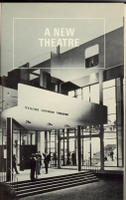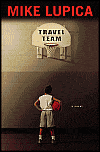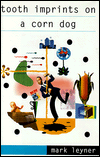
Simon and Schuster paperbacks -- tpb
New York -- ©2005 -- 344pp
ISBN: 0-7432-7394-X
A collection of short stories. Sales of the book support 826NYC, a non-profit tutoring center in Brooklyn, NY. Contents of the book are:
"Introduction" -- David Sedaris
"Oh, Joseph, I'm So Tired" -- Richard Yates
"Gryphon" -- Charles Baxter
"Interpreter of Maladies" -- Jhumpa Lahiri
"The Garden Party" -- Katherine Mansfield
"Half a Grapefruit" -- Alice Munro
"Applause, Applause" -- Jean Thompson
"I Know What I'm Doing About All the Attention I've Been Getting" -- Frank Gannon
"Where the Door Is Always Open and the Welcome Mat Is Out" -- Patricia Highsmith
"The Best of Betty" -- Jincy Willett
"Song of the Shirt, 1941" -- Dorothy Parker
"The Girl With the Blackened Eye" -- Joyce Carol Oates
"People Like That Are the Only People Here: Canonical Babbling in Peed Onk" -- Lorrie Moore
"Revelation" -- Flannery O'Connor
"In the Cemetery Where Al Jolsen Is Buried" -- Amy Hempel
"Cosmopolitan" -- Akhil Sharma
"Irish Girl" -- Tim Johnston
"Bullet in the Brain" -- Tobias Wolff
"Epilogue: About 826NYC" -- Sarah Vowell
I like reading short stories, and I like collections such as this to expose me to the works of other authors I might not normally look for. Unforunately, while most (if not all) these stories are well told and interesting in some way, none of them has made a lasting impression with me. Never did I go back to double check an author's name because I wanted more by that person. And some of these authors are "big name" writers!
A worthy cause and a decent collection make this a worthwhile purchase, but the forgettable nature of the works suggest that I don't recommend it.
 The Sally Lockheart Trilogy -- Book One
The Sally Lockheart Trilogy -- Book One





